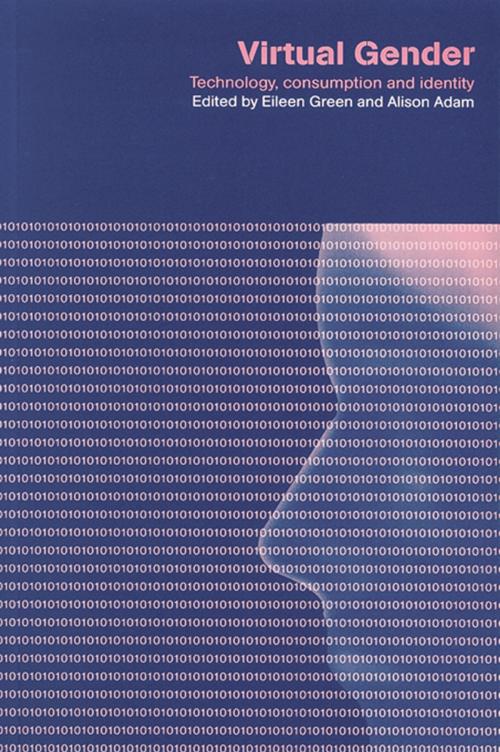Virtual Gender
Technology, Consumption and Identity Matters
Nonfiction, Health & Well Being, Medical, Allied Health Services, Social & Cultural Studies, Social Science, Gender Studies| Author: | ISBN: | 9781134570041 | |
| Publisher: | Taylor and Francis | Publication: | August 3, 2005 |
| Imprint: | Routledge | Language: | English |
| Author: | |
| ISBN: | 9781134570041 |
| Publisher: | Taylor and Francis |
| Publication: | August 3, 2005 |
| Imprint: | Routledge |
| Language: | English |
As yet there has been relatively little published on women's activities in relation to new digital technologies. Virtual Gender brings together theoretical perspectives from feminist theory, the sociology of technology and gender studies with well designed empirical studies to throw new light on the impact of ICTs on contemporary social life.
A line-up of authors from around the world looks at the gender and technology issues related to leisure, pleasure and consumption, identity and self. Their research is set against a backcloth of renewed interest in citizenship and ethics and how these concepts are recreated in an on-line situation, particularly in local settings.
With chapters on subjects ranging from gender-switching on-line, computer games, and cyberstalking to the use of the domestic telephone, this stimulating collection challenges the stereotype of woman as a passive victim of technology. It offers new ways of looking at the many dimensions in which ICTs can be said to be gendered and will be a rich resource for students and teachers in this expanding field of study.
As yet there has been relatively little published on women's activities in relation to new digital technologies. Virtual Gender brings together theoretical perspectives from feminist theory, the sociology of technology and gender studies with well designed empirical studies to throw new light on the impact of ICTs on contemporary social life.
A line-up of authors from around the world looks at the gender and technology issues related to leisure, pleasure and consumption, identity and self. Their research is set against a backcloth of renewed interest in citizenship and ethics and how these concepts are recreated in an on-line situation, particularly in local settings.
With chapters on subjects ranging from gender-switching on-line, computer games, and cyberstalking to the use of the domestic telephone, this stimulating collection challenges the stereotype of woman as a passive victim of technology. It offers new ways of looking at the many dimensions in which ICTs can be said to be gendered and will be a rich resource for students and teachers in this expanding field of study.















